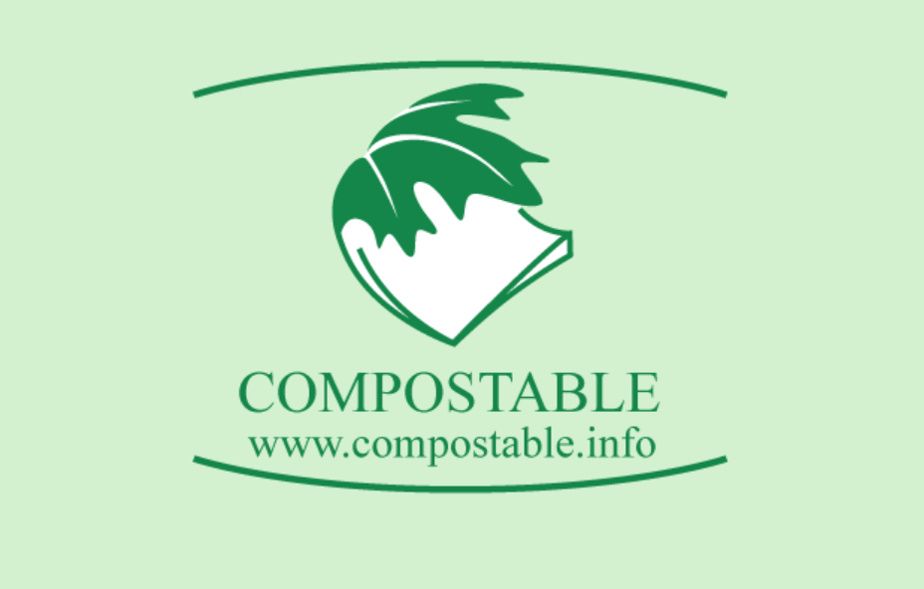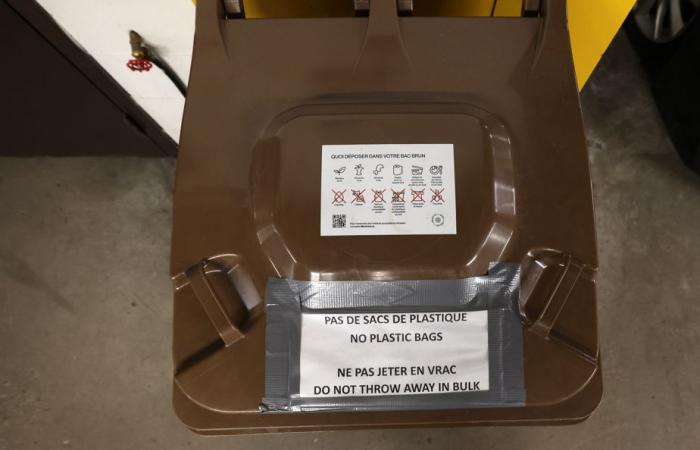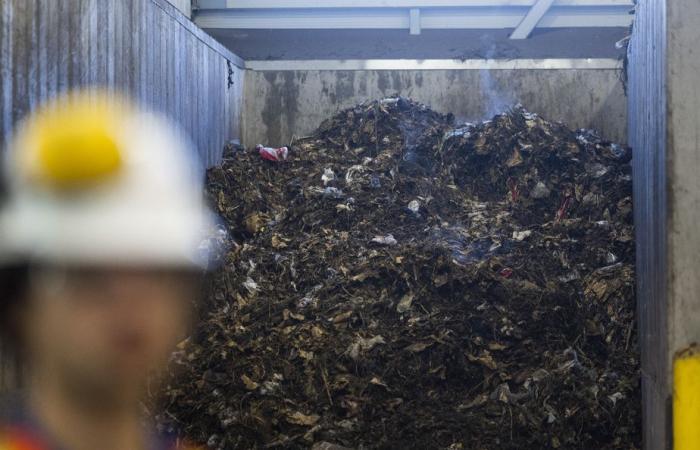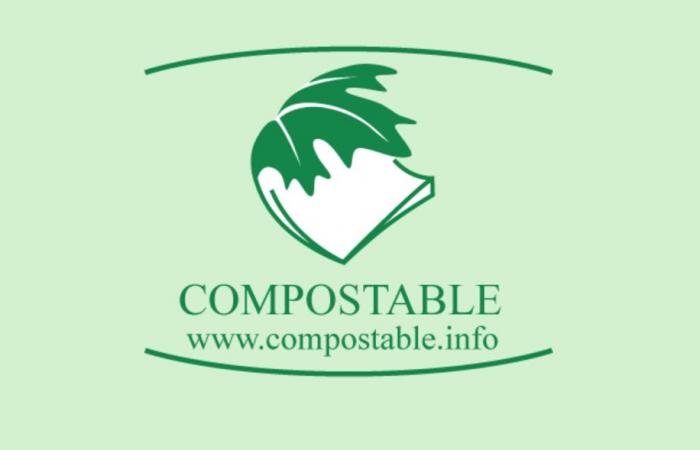Is it true that compostable bags are not composted in Montreal? But then, what should they be replaced with?
Published at 5:00 a.m.
We received several questions from readers about compostable plastic bags following an article published in October about the opening of a first composting plant in Montreal.
Read “Starting your first composting plant”
Are compostable plastic bags always removed?
After verification, although they are accepted by the municipality, the compostable plastic bags are actually ripped open before being removed from circulation when they arrive at the composting plant.
“We must separate them from the residue and send them to landfill,” underlines Camille Bégin, communications advisor to the City of Montreal.
The reason is simple: these bags, which are made of plant material, are difficult to distinguish from ordinary plastic bags, made from petroleum.
If we wanted to separate compostable plastic bags from the rest, “we would have to sort them, checking each bag one by one. But it’s impossible to take that time when we receive a large volume of materials, as is the case in Montreal,” explains Vincent Beaudoin, specialist in organic materials management.
PHOTO PATRICK SANFAÇON, LA PRESSE ARCHIVES
The material from the brown bins ends up piled up at the Saint-Laurent composting center.
This is why, sometimes – as in Montreal – all plastic bags are removed, to prevent the compost from becoming contaminated by pieces of plastic.
Be careful, however: in some municipalities, there are processes that allow compostable plastic bags to be composted; and conversely, in others, no plastic bags – compostable or not – are accepted.
“We cannot generalize to the entire territory, it really depends on the process used,” summarizes Vincent Beaudoin.
Why accept them?
Compostable bags accepted for composting, but not composted? This may seem paradoxical; especially since once sent to landfill, these bags will release methane as they decompose.
If Montreal and other cities accept them, it is above all for a pragmatic reason: if bags were banned, many citizens would abandon participation in the collection.
“It’s really worth it to get people more involved,” underlines Vincent Beaudoin. “Of course, we send bags to landfill, but by doing that, we prevent a large volume of organic matter from ending up there. »
And these bags also have the advantage of not causing a problem if fragments end up in the compost, unlike ordinary plastic bags.
The “hidden war” of bags
If we have to remove all the bags, it is because there is an underlying problem: often, citizens use bags for composting that are not suitable for composting. And this, without knowing it.
In fact, “there is an incompatibility between the products sold and the composting processes used by municipalities,” explains Vincent Beaudoin.
“Why are there 26 choices of bags on the shelves, when we know very well that there are probably three that correspond to Quebec reality, and that could really be composted? », he says.
In particular, “oxobiodegradable bags are at the top of the list of our problems,” sighs Maud Fillion, expert in residual materials management at the City of Montreal. These are made of ordinary plastic with an additive added to make it degrade more quickly.
If they are used for compost, they therefore pose a risk of contamination… even though their name encourages them to be used in this way.
“The real question is therefore not around the compostable bag, but around this “hidden war””, sighs Vincent Beaudoin.
“There are industries that are just there to sell their salad. What we need to do above all is to better control what is on the shelves, so that citizens can make the right choice,” he adds.
What to choose, finally?
In municipalities where the purple bag system is used, these must be used (and not others) to compost.
Elsewhere, ideally, it is better to turn to paper bags, or newspaper – or even, neither bag nor newspaper –, in order to be sure that the bags will also end up in the compost, with the residual materials they contain.
If you want to use plastic bags for composting, you must make sure to choose certified compostable bags – provided, of course, that your municipality accepts them. The reference certification in Quebec is that of the Bureau de normalization du Québec (CAN/BNQ 0017-088 or ISO 17088).

IMAGE PROVIDED BY THE BUREAU DE STANDARDIZATION DU QUÉBEC
The image of the CAN/BNQ 0017-088 or ISO 17088 standard for compostable products
As for oxobiodegradable, biodegradable or other bags, which do not have certification proving that they are compostable, they should be avoided for compost.
“And if in doubt, you can always call your municipality” to check what it accepts or not, or what is best to use, advises Vincent Beaudoin.








